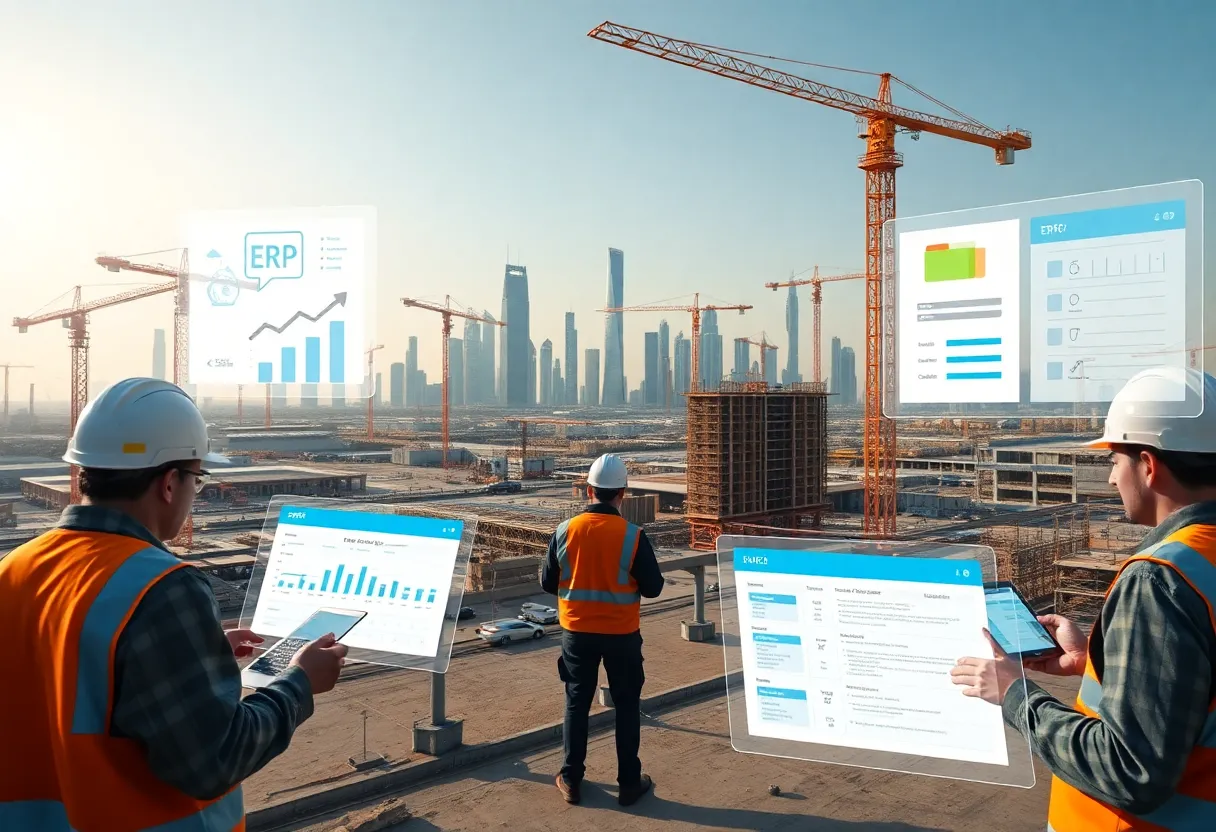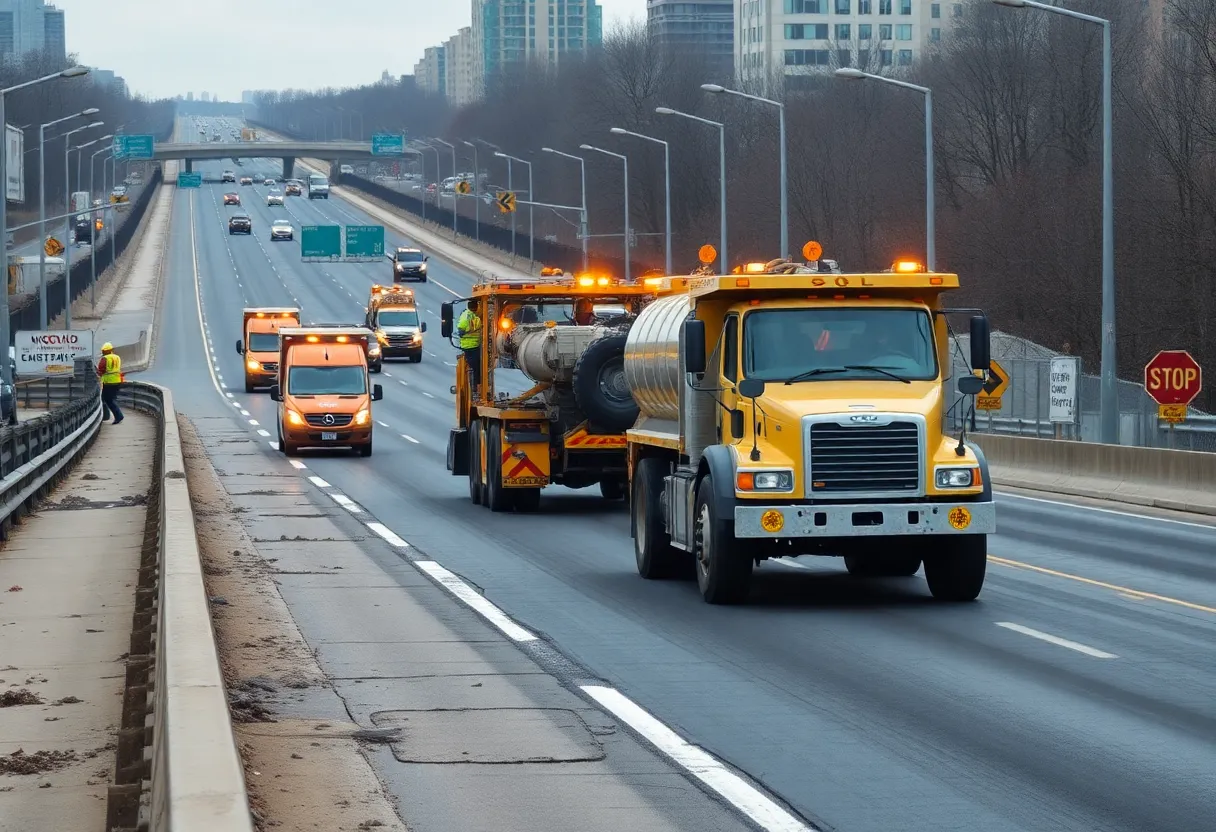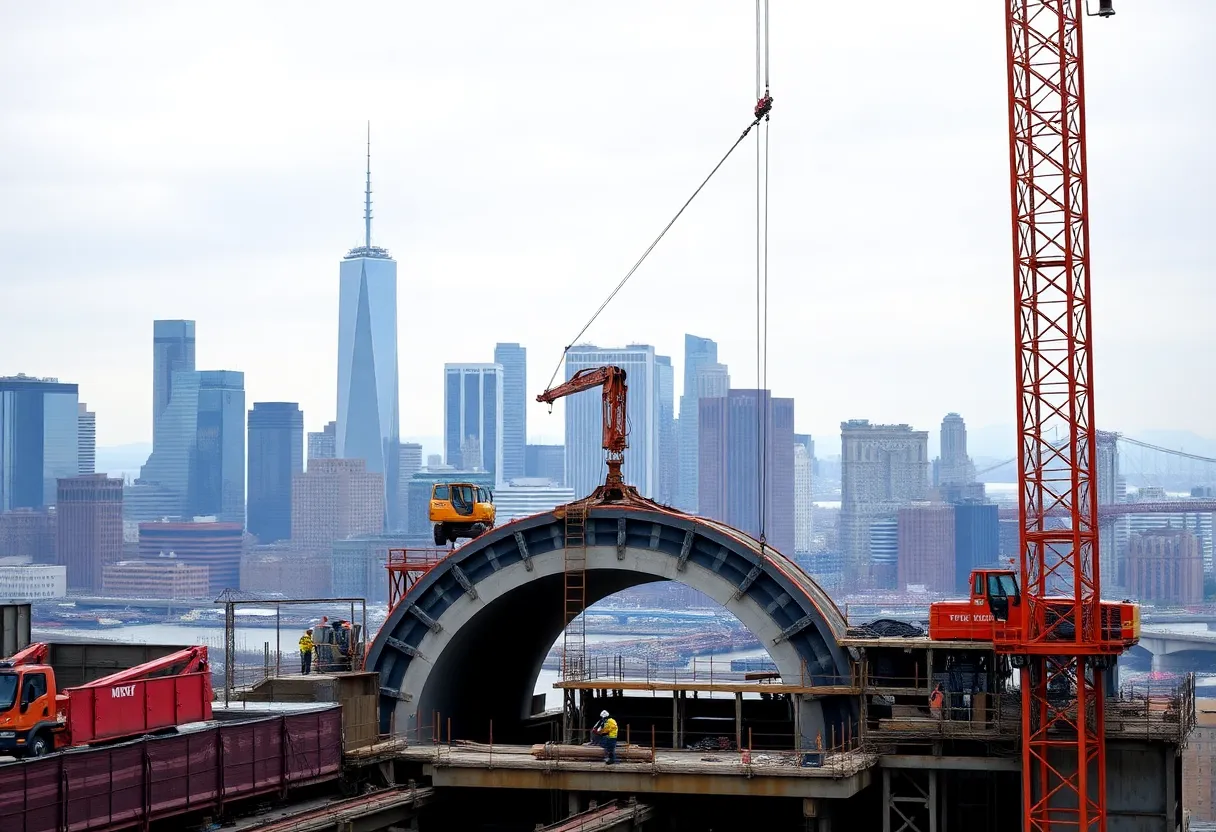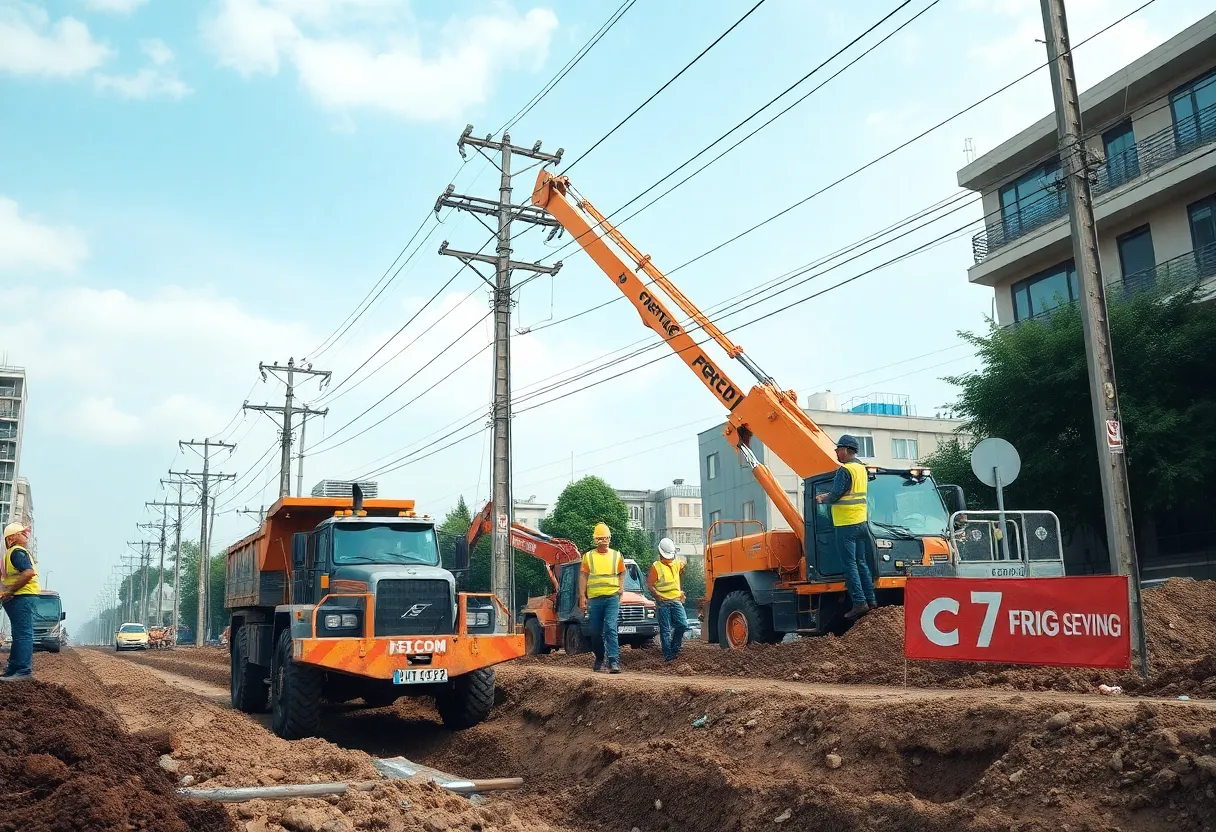Dubai, October 3, 2025
News Summary
Dubai has introduced Law No. 7 to create a unified system for contractor registration, classification and certification across the Emirate. The law requires contractors, subcontractors and joint ventures to operate within their registered scopes, employ minimum certified technical staff, and keep registrations and competency certificates current. Non-compliance can lead to fines up to AED 100,000 (doubling for repeat offences) and measures such as suspension or cancellation. The change coincides with a push toward integrated construction ERP platforms to centralise project data and compliance. Contractors are advised to begin registration, verify subcontractors and adopt digital systems.
Dubai issues Law No. 7/2025 as construction shifts toward integrated digital platforms
What happened: Dubai has issued Law No. 7/2025, establishing a comprehensive regulatory framework for contracting activities across the Emirate, including its free zones and special development areas. The new law (Law No. 7/2025) introduces registration and classification requirements aimed at enhancing standards, ensuring quality, and fostering investment. The new law will take effect in January 2026. Contractors will have one year from the law’s effective date (i.e., until January 2027) to meet the new registration and classification requirements.
Key requirements and deadlines
Under the new rules, contractors may only carry out permitted contracting activities in line with their registration and within the limits of their classification. Contractors must employ a minimum number of qualified and properly certified technical staff and must keep registrations, classifications and certifications up-to-date and notify any changes affecting their status or that of their technical staff. The registration, classification and certification requirements apply to contractors, subcontractors and entities acting in joint ventures or consortiums. Airport-related contracting activities are exempted from these requirements.
Enforcement and penalties
Violations of the new law can result in fines of up to AED 100,000. Repeat offences can result in doubled penalties up to AED 200,000. Additional enforcement measures under the law may include suspension from practice, downgrading of classification, cancellation of registration, and revocation of competency certificates. Designated officials under the law have judicial powers to inspect contractor premises and project sites. Contractors may be subject to investigation and enforcement action if found non-compliant.
Contractor duties and contract risk
Contractors must ensure they are properly registered and classified for all contracting activities they intend to undertake in Dubai. Contractors are responsible for verifying that subcontractors they engage are also properly registered, certified, and classified for the relevant activities. The requirement to verify subcontractors’ registration/certification/classification also applies to parties participating in joint ventures or consortiums. Joint venture or consortium agreements should expressly require all parties to satisfy the registration, classification, and certification requirements and include remedies in the event of breach. Employers are likely to include contract provisions requiring ongoing compliance and entitling the employer to specific remedies for non-compliance; employer remedies may extend to serious measures such as contract termination and step-in rights.
Transition and recommended actions
Contractors will have one year from the law’s effective date (i.e., until January 2027) to meet the new registration and classification requirements. During the transitional period contractors are advised to begin the registration and classification process and prepare internally. Contractors are advised to ensure their teams are trained to use the registration system and to maintain records of compliance checks as part of due diligence. Contractors are advised to review ongoing and upcoming projects to confirm that all engaged parties are in the process of being registered and classified to avoid disruptions and penalties under the new law.
Why digital platforms matter now
The law arrives as the construction sector is undergoing a fundamental operational shift. For decades the construction industry relied on a patchwork of tools: spreadsheets for budgets, paper logs for materials, separate software for payroll, and email chains for communication. That fragmented approach worked historically, until projects grew larger, profit margins tightened, and regulations became stricter. A fundamental shift is underway: construction companies, including general and specialty contractors, are increasingly turning to integrated digital platforms (examples given: ERP software for construction in UAE).
The aim of adopting integrated platforms is sustainable efficiency and moving from reactive problem-solving to proactive, data-driven management. The transition to integrated digital platforms is not about replacing workers with robots but about giving workers the right tools to succeed. Firms that embrace integrated digital management report cost savings, improved team morale, faster project delivery, and stronger client relationships built on transparency and reliability. The guest opinion concludes that for any construction business in the UAE looking to future-proof operations, exploring dedicated digital solutions is no longer optional — it is essential. REGISTER! MORE INFO HERE!
Operational benefits and construction-specific needs
Integrated platforms create a single, reliable source of truth for the entire project lifecycle. Such a platform acts like a central nervous system for the business, connecting every department and process. When a project manager logs a delay, the finance team can immediately see projected cost impact; when a warehouse clerk scans a delivery, purchasing knows the budget has been adjusted. Information flowing freely enables decisions to be made with confidence.
Not every digital tool is created equal. Generic accounting or project management software often fails for construction because it does not understand construction-specific concepts such as Bill of Quantities, Work Breakdown Structures, or phased revenue recognition. Operating in the Emirates requires more than translating an interface into Arabic; it requires understanding UAE VAT, labour laws, Wage Protection System (WPS) compliance, and local business culture. A solution developed with or deeply adapted to the UAE market removes friction and ensures seamless compliance from day one.
Other items observed in source material
The material behind this report also documented web form validation logic used on a site. One script named CheckMultiple21 loops through form elements and checks element.id and element.checked to find a matching checked element by id substring, returning true if found and false otherwise. Another script named CheckForm21 contains an email validation using a robust regex, and if the email fails validation it alerts Please enter your email address., focuses the email field, and returns false. CheckForm21 checks if f.captcha.value is empty and if so alerts Please enter the security code shown, focuses the captcha field, and returns false. CheckForm21 also checks fields with IDs CustomFields_2_21 and CustomFields_3_21 (First Name and Last Name); if either is empty it alerts the user to enter a value for that field, focuses the field, and returns false. CheckForm21 returns true at the end if all checks pass.
The source also included a short user comment referencing a high-priced laptop: That MSI dragon laptop looks cool! But $11,799 ……. :O I might think on a bit longer 🙂 and made brief technical observations about cybersecurity and architecture trends. These elements indicate that conversations around procurement, security and platform design are occurring alongside the legal and operational changes in construction.
Bottom line
Law No. 7/2025 tightens controls and enforces a registration and classification regime that will reshape contracting practices in Dubai. At the same time the sector’s move toward integrated digital platforms aims to help businesses meet the law’s ongoing compliance obligations, reduce information silos, and protect margins. Contractors should begin preparations now to register, classify, train staff, and verify supply-chain partners before the transition deadline.
FAQ
Q: When does the new law take effect?
A: The new law will take effect in January 2026.
Q: How long do contractors have to comply?
A: Contractors will have one year from the law’s effective date (i.e., until January 2027) to meet the new registration and classification requirements.
Q: What are the financial penalties for violating the law?
A: Violations of the new law can result in fines of up to AED 100,000. Repeat offences can result in doubled penalties up to AED 200,000.
Q: Are any activities exempted from the registration and classification requirements?
A: Airport-related contracting activities are exempted from these requirements.
Q: What are contractor responsibilities under the new law?
A: Contractors must ensure they are properly registered and classified for all contracting activities they intend to undertake in Dubai. Contractors are responsible for verifying that subcontractors they engage are also properly registered, certified, and classified for the relevant activities.
{
“@context”: “https://schema.org”,
“@type”: “FAQPage”,
“mainEntity”: [
{
“@type”: “Question”,
“name”: “When does the new law take effect?”,
“acceptedAnswer”: {
“@type”: “Answer”,
“text”: “The new law will take effect in January 2026.”
}
},
{
“@type”: “Question”,
“name”: “How long do contractors have to comply?”,
“acceptedAnswer”: {
“@type”: “Answer”,
“text”: “Contractors will have one year from the lawu2019s effective date (i.e., until January 2027) to meet the new registration and classification requirements.”
}
},
{
“@type”: “Question”,
“name”: “What are the financial penalties for violating the law?”,
“acceptedAnswer”: {
“@type”: “Answer”,
“text”: “Violations of the new law can result in fines of up to AED 100,000. Repeat offences can result in doubled penalties up to AED 200,000.”
}
},
{
“@type”: “Question”,
“name”: “Are any activities exempted from the registration and classification requirements?”,
“acceptedAnswer”: {
“@type”: “Answer”,
“text”: “Airport-related contracting activities are exempted from these requirements.”
}
},
{
“@type”: “Question”,
“name”: “What are contractor responsibilities under the new law?”,
“acceptedAnswer”: {
“@type”: “Answer”,
“text”: “Contractors must ensure they are properly registered and classified for all contracting activities they intend to undertake in Dubai. Contractors are responsible for verifying that subcontractors they engage are also properly registered, certified, and classified for the relevant activities.”
}
}
]
}
Key features at a glance
| Feature | Summary |
|---|---|
| Scope | Applies across Dubai, including free zones and special development areas; airport-related activities exempted |
| Registration and classification | Unified system; contractors may only carry out activities within registration/classification limits |
| Technical staff | Minimum number of qualified and certified technical staff required |
| Subcontractors and JVs | Requirements apply to subcontractors and joint ventures; verification duties on contractors |
| Enforcement | Fines up to AED 100,000; repeat offences up to AED 200,000; suspension, downgrade, cancellation and inspections possible |
| Effective date and transition | Effective January 2026; one-year transitional period until January 2027 to comply |
| Digital response | Shift to integrated digital platforms (ERP) recommended to manage compliance, reduce silos and provide a single source of truth |
Deeper Dive: News & Info About This Topic
Additional Resources
- Mayer Brown: Dubai overhauls construction sector — Law No. 7/2025
- Wikipedia: United Arab Emirates
- CBN Middle East: As Dubai builds luxury — time to rebuild contracting standards
- Google Search: Dubai contracting standards
- Construction Week Online: Beyond Dubai Maritime City
- Google Scholar: Dubai Maritime City
- Reuters: Dubai developers bring construction in-house — demand surges
- Encyclopedia Britannica: Dubai
- Bloomberg: Dubai’s construction boom stokes fears of another crash (video)
- Google News: Dubai construction boom
Author: Construction NY News
The NEW YORK STAFF WRITER represents the experienced team at constructionnynews.com, your go-to source for actionable local news and information in New York and beyond. Specializing in "news you can use," we cover essential topics like product reviews for personal and business needs, local business directories, politics, real estate trends, neighborhood insights, and state news affecting the area—with deep expertise drawn from years of dedicated reporting and strong community input, including local press releases and business updates. We deliver top reporting on high-value events such as the New York Build Expo, infrastructure breakthroughs, and cutting-edge construction technology showcases. Our coverage extends to key organizations like the Associated General Contractors of New York State and the Building Trades Employers' Association, plus leading businesses in construction and real estate that power the local economy such as Turner Construction Company and CMiC Global. As part of the broader network, including constructioncanews.com, constructiontxnews.com, and constructionflnews.com, we provide comprehensive, credible insights into the dynamic construction landscape across multiple states.





